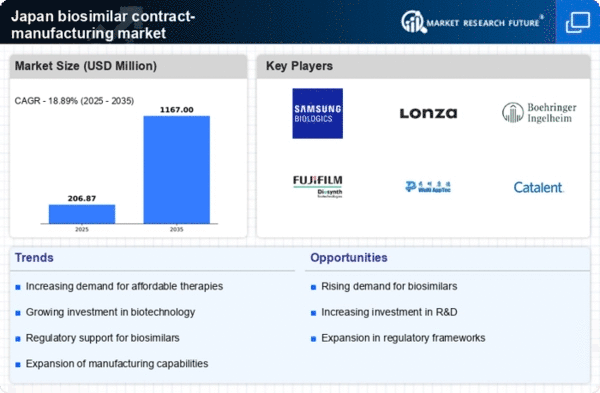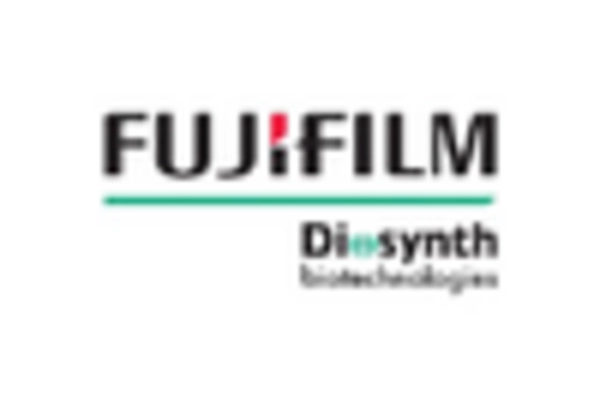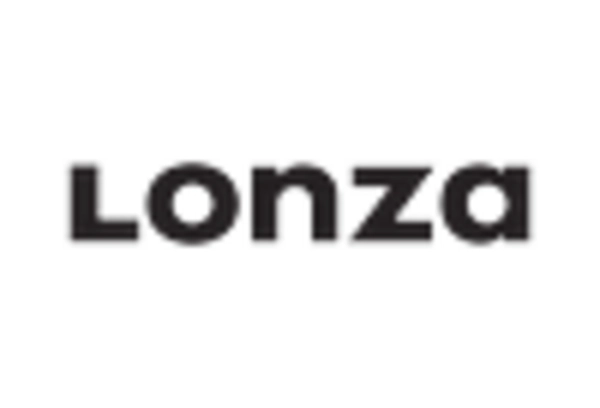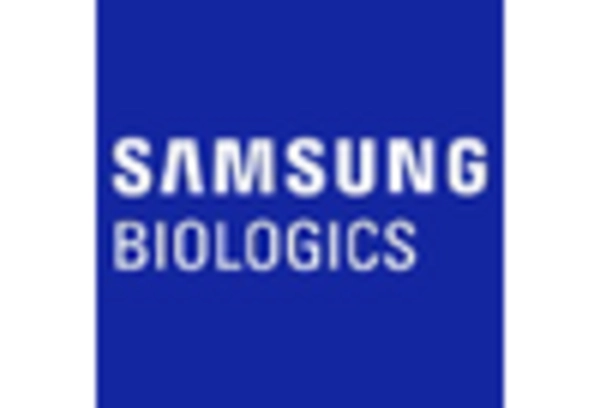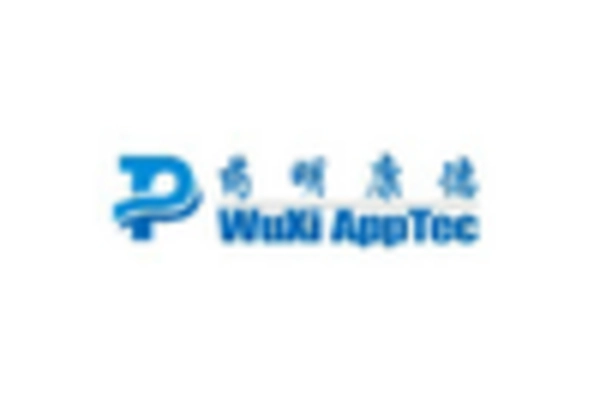Focus on Personalized Medicine
The shift towards personalized medicine in Japan is emerging as a notable driver for the biosimilar contract-manufacturing market. As healthcare providers increasingly recognize the importance of tailoring treatments to individual patient needs, the demand for biosimilars that can be customized is likely to rise. In 2025, the market for personalized medicine is projected to grow by approximately 10%, reflecting a broader trend towards individualized therapies. This shift encourages contract manufacturers to develop flexible production processes that can accommodate varying specifications for biosimilars. The biosimilar contract-manufacturing market is thus expected to expand as manufacturers adapt to the evolving landscape of personalized medicine, providing innovative solutions that align with the needs of healthcare providers and patients alike.
Increasing Healthcare Expenditure
The rising healthcare expenditure in Japan is a pivotal driver for the biosimilar contract-manufacturing market. As the government allocates more funds towards healthcare, the demand for affordable treatment options intensifies. In 2025, Japan's healthcare spending is projected to reach approximately $500 billion, reflecting a growth rate of around 3% annually. This increase in expenditure is likely to encourage healthcare providers to seek cost-effective alternatives, such as biosimilars, which can significantly reduce treatment costs. Consequently, contract manufacturers are positioned to capitalize on this trend by offering tailored solutions that meet the evolving needs of healthcare providers. The biosimilar contract-manufacturing market is thus expected to expand as stakeholders recognize the potential for biosimilars to alleviate financial pressures while maintaining high-quality standards.
Regulatory Support for Biosimilars
Japan's regulatory environment is increasingly supportive of biosimilars, which serves as a crucial driver for the biosimilar contract-manufacturing market. The Pharmaceuticals and Medical Devices Agency (PMDA) has streamlined the approval process for biosimilars, enhancing the market's attractiveness for manufacturers. In 2025, the PMDA is anticipated to approve several new biosimilars, further encouraging investment in contract manufacturing. This regulatory support not only fosters innovation but also instills confidence among stakeholders regarding the safety and efficacy of biosimilars. As a result, contract manufacturers are likely to experience heightened demand for their services, as pharmaceutical companies seek to navigate the regulatory landscape effectively. The biosimilar contract-manufacturing market is thus poised for growth, driven by favorable policies that promote the development and commercialization of biosimilars.
Aging Population and Chronic Diseases
Japan's aging population is a significant driver for the biosimilar contract-manufacturing market. With over 28% of the population aged 65 and older, the prevalence of chronic diseases is on the rise, necessitating effective and affordable treatment options. The demand for biologics, which are often expensive, is expected to increase as the population ages. Biosimilars present a viable solution to this challenge, offering similar therapeutic benefits at reduced costs. In 2025, it is estimated that the market for biosimilars in Japan could reach $1 billion, driven by the need for cost-effective therapies for chronic conditions. Consequently, contract manufacturers are likely to play a vital role in meeting this demand, as pharmaceutical companies look to leverage biosimilars to address the healthcare needs of an aging demographic. The biosimilar contract-manufacturing market is thus positioned for substantial growth.
Rising Competition Among Biopharmaceutical Companies
The competitive landscape among biopharmaceutical companies in Japan is intensifying, which serves as a key driver for the biosimilar contract-manufacturing market. As more companies enter the biosimilar space, the need for efficient and cost-effective manufacturing solutions becomes paramount. In 2025, the number of biosimilar products in development is expected to increase significantly, leading to heightened competition. This scenario compels companies to seek contract manufacturing partners that can provide high-quality production capabilities at competitive prices. The biosimilar contract-manufacturing market is likely to benefit from this trend, as manufacturers strive to differentiate themselves through innovation and operational efficiency. As competition escalates, the demand for specialized contract manufacturing services is expected to grow, further propelling the market forward.


